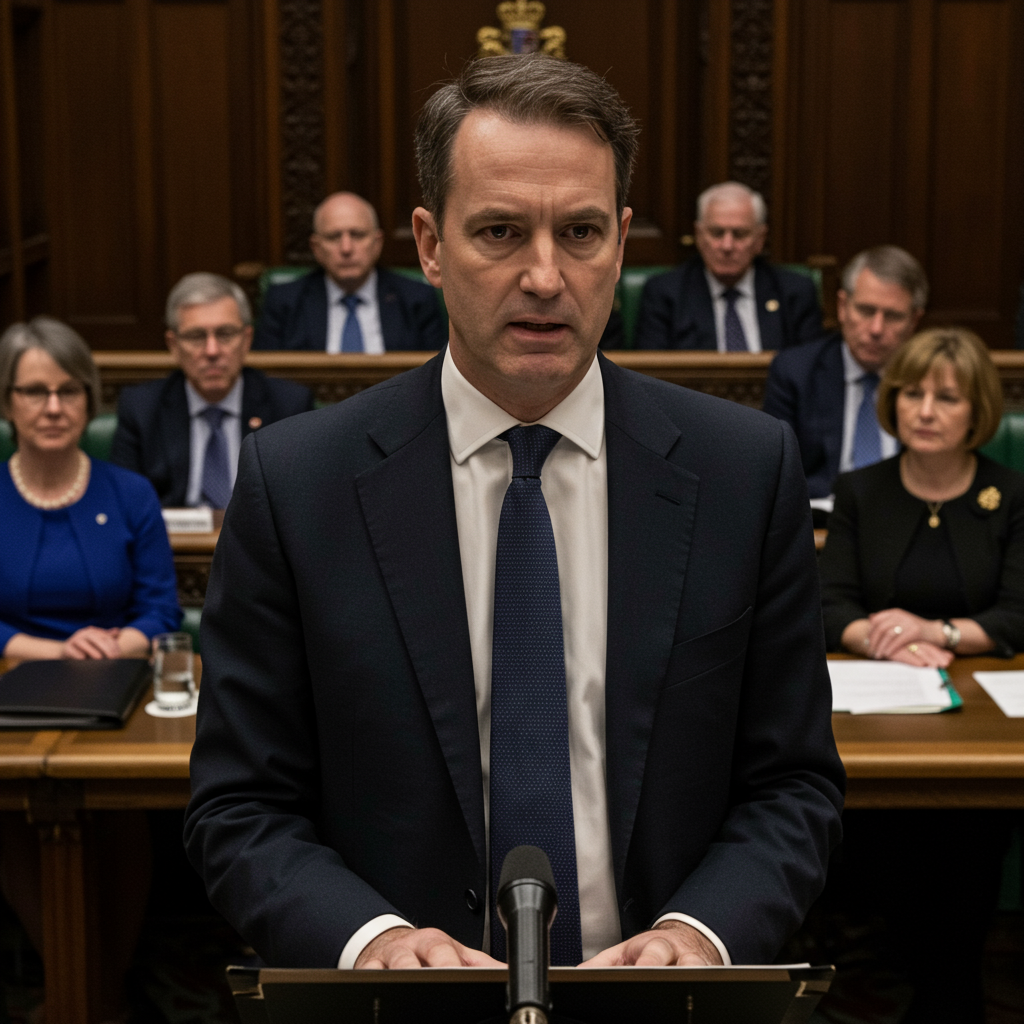Britain’s domestic intelligence agency, MI5, has issued a significant apology following a High court ruling that a senior spy provided “false evidence” in court proceedings. This unprecedented situation stems from cases involving a former neo-Nazi informant, known publicly only as ‘X’, and his former partner, referred to as ‘Beth’. The High Court’s finding highlights serious concerns about the accuracy of information presented by the security service in legal settings and the application of its core secrecy policies.
The core of the issue revolves around MI5’s handling of ‘X’, a foreign national who worked as a paid informant on the far right but was also accused of serious violence, including a machete attack on Beth. The case gained public attention after a BBC investigation uncovered details about the informant and revealed that MI5 had actually departed from its standard “neither confirm nor deny” (NCND) policy regarding his status in communications with the broadcaster, despite later claiming in court that they had maintained this stance.
False Evidence Presented to Multiple Courts
The false evidence was delivered in a witness statement by a senior MI5 officer, referred to as Witness A, on behalf of the agency. This statement was relied upon in three distinct court cases. Initially, it was used in the government’s application for an injunction to prevent the BBC from identifying ‘X’. Despite the BBC possessing evidence, including a recording of an MI5 officer confirming ‘X”s status while attempting to deter their reporting, Witness A’s evidence in court maintained the agency’s standard NCND policy, casting doubt on the BBC’s reporting.
Subsequently, the same false evidence was presented and relied upon in two further cases brought by Beth against MI5. These included a claim before the Investigatory Powers Tribunal (IPT), where Beth sought answers about MI5’s recruitment and management of ‘X’ and whether her human rights were breached by their alleged failure to protect her from his abuse. MI5’s continued reliance on the NCND policy and the false evidence in these cases significantly hampered Beth’s ability to pursue her claim and secure a fair hearing.
High Court Rules Evidence Was “False”
The High Court, presided over by a panel of three senior judges including the Lady Chief Justice of England and Wales, Sue Carr, Dame Victoria Sharp, and Mr Justice Chamberlain, definitively ruled that the evidence provided by Witness A was “false.” Mr Justice Chamberlain had previously indicated he had “no confidence” in MI5’s account of how the false evidence was given.
While an external review commissioned by MI5 and led by Jonathan Jones KC concluded that the false evidence resulted from “a series of mistakes, some systemic and some personal,” and that there was “no deliberate attempt by any MI5 staff member to mislead the court,” the judges found MI5’s subsequent explanations for the errors “piecemeal and unsatisfactory” and stated they could not be relied upon. This judicial scepticism underscores the severity with which the court viewed the agency’s actions and explanations.
MI5 Issues “Full and Unreserved Apology”
In the wake of the High Court’s finding, MI5’s Director General, Ken McCallum, issued a “full and unreserved apology for the errors made in these proceedings.” He acknowledged the gravity of the situation and stated the domestic spy agency would cooperate with authorities to resolve the embarrassing case. McCallum had previously admitted in January that Witness A’s evidence was false and later confirmed ‘X’ was indeed an agent, citing “exceptional circumstances.”
MI5 has initiated both an internal investigation and commissioned the external review by Jonathan Jones KC to understand what went wrong and prevent future occurrences. The internal review involved extensive questioning of the senior officer (referred to as Officer 2) who had initially confirmed ‘X”s status to the BBC. Although the internal investigation reportedly concluded there was no intent to lie and assessed Officer 2’s credibility positively, the conclusions are subject to further review within MI5.
Potential Contempt of Court Proceedings
The High Court has now referred the matter to the Investigatory Powers Commissioner to determine whether a contempt of court prosecution should be brought against MI5 or individuals involved. This is a highly significant development, as initiating contempt proceedings against the security service or its officers would be an unprecedented situation.
Representing the Attorney General, James Eadie KC presented MI5’s position in court, offering an “unreserved apology” and acknowledging “failings and errors” but suggesting there was “no intent” to give false information, possibly just “a taking an eye off the ball.” He argued that contempt proceedings would not be appropriate and that accountability had been taken. However, the BBC, represented by Jude Bunting KC, and Beth’s legal team, led by Charlotte Kilroy KC, both argued that the threshold for contempt had been met, alleging deliberate lying and a lack of transparency in MI5’s investigations. Beth’s lawyer described “copious levels of dishonesty” and felt the case had “really undermined MI5’s credibility in the courts.”
Scrutiny on the “Neither Confirm Nor Deny” Policy
Beyond the false evidence itself, the three judges also raised broader concerns about the government’s use of the NCND policy regarding the identity of informants and agents. They stated that “The use of NCND in these proceedings, and its maintenance until the very last minute, raises wider concerns” and invited parties to the case to submit arguments regarding the appropriateness of the policy.
MI5 maintains that NCND is crucial for national security and protecting agents. However, critics argue it can be used to obstruct justice or avoid accountability. In a significant outcome for Beth, MI5 has now accepted that it “plainly” cannot continue to apply its core secrecy policy to ‘X’ in this specific case. This concession may enable Beth to pursue her human rights claim more effectively in the IPT without being hampered by MI5’s secrecy surrounding the agent’s status.
Seeking Justice and Accountability
Kate Ellis, representing Beth from the Centre for Women’s Justice, viewed the court’s judgment as a “clear rejection” of MI5’s explanations and a “very serious warning” for the agency to cooperate with future inquiries. She saw it as important vindication for Beth, demonstrating that the courts would not accept MI5’s explanations at face value. Ellis highlighted that the truth about the false evidence only emerged because the BBC disclosed its secret recording, suggesting MI5 had otherwise “robustly maintain[ed] their original version of events.”
Beth herself spoke out, stating she feels she only matters to the agency because her legal action is “throwing a spotlight on the way that they behave.” While finding the process re-traumatising, she deemed it necessary to potentially achieve “some sort of reasonable justice” and address broader issues of violence against women. The case continues to be a major test of how the courts view MI5 and the credibility of its evidence, particularly given the unusual circumstance that the false evidence was given in proceedings brought on behalf of the Attorney General, typically the figure responsible for contempt proceedings. The judges have reserved their judgment on further action, leaving the possibility of unprecedented consequences for the security service.
Frequently Asked Questions
Why did MI5 apologise for providing false evidence?
MI5 apologised after the High Court ruled that a senior spy gave “false evidence” in three court cases concerning a neo-Nazi informant known as ‘X’. This evidence contradicted the fact that MI5 had internally confirmed ‘X”s status as an agent, and even disclosed it to a BBC journalist. MI5 Director General Ken McCallum issued a “full and unreserved apology” for the errors, acknowledging the seriousness and the court’s finding that the agency’s explanations were unsatisfactory.
Could MI5 face contempt of court charges?
Yes, the High Court has referred the matter to the Investigatory Powers Commissioner to investigate and determine if a contempt of court prosecution should be brought. This would be an unprecedented step against the security service or its officers. While MI5 has apologised and claimed errors were not deliberate, both the BBC and the informant’s former partner’s legal teams have argued that the threshold for contempt has been met due to alleged deliberate lying and lack of transparency.
What was the issue with MI5’s “neither confirm nor deny” policy in this case?
MI5’s standard policy is to neither confirm nor deny the identity of its agents (NCND). In this case, MI5 claimed in court proceedings it had maintained this policy regarding agent ‘X’, despite evidence showing a senior officer had confirmed his status to a BBC journalist. The High Court judges found the false evidence stemmed from this contradiction and raised wider concerns about the appropriateness of using NCND, particularly when it might hinder legal proceedings or accountability. MI5 has since conceded that NCND cannot apply to ‘X’ in this specific context.
Word Count Check: 1094




